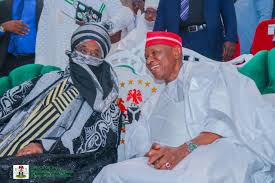
Presidential Tax Reform Chair says government now has access to global financial data of Nigerians with offshore assets…
Chairman of the Presidential Committee on Fiscal Policy and Tax Reforms, Taiwo Oyedele, has disclosed that Nigeria has entered into agreements with over 100 countries to share financial data on Nigerians working remotely or holding assets abroad, a move aimed at improving tax compliance among online and foreign income earners.
Oyedele revealed this during a webinar hosted by the National Orientation Agency (NOA) on Wednesday, themed “Simplifying Nigeria’s Tax System.” The session addressed the challenges of taxing digital economy participants, including remote workers and online freelancers.
According to him, all Nigerians earning income whether from local companies, global corporations, or digital platforms are required to self-declare their earnings and pay taxes accordingly.
“Whether you earn your money from Google or from a company in the Bahamas, you have to declare your income yourself,” Oyedele said. “If you fail to do so, the system will gather intelligence once the money hits your bank account.”
He explained that the Nigerian government already has transaction data for funds entering local bank accounts and now receives international financial intelligence through the Common Reporting Standards (CRS) framework.
“Nigeria has signed an agreement with over 100 countries under the CRS. They are already sending us data about Nigerians who have money or property abroad from Dubai to the US, Canada, and the UK. We have that information already,” he said.
Oyedele urged citizens to “do the right thing” by declaring income voluntarily, warning that the government could issue presumptive tax assessments against individuals who fail to comply.
Engagement With Global Tech Companies
The tax reform chief also revealed that Nigeria had engaged major global technology companies over the past four years to ensure Value Added Tax (VAT) compliance on digital services.
“If you sell a phone in a physical store, you charge VAT. Why should an online platform selling the same item from abroad not charge VAT?” he asked.
Oyedele said the committee adopted a collaborative, not confrontational, approach with big tech firms, a strategy he claimed has already yielded billions of dollars in VAT revenue for the government.
“We spoke to them, understood their concerns, and reached an agreement. Today, Nigeria earns billions from those digital giants without fighting,” he stated.
Legislative Clarifications and Tax Reforms
Addressing questions about inconsistencies in Nigeria’s new tax laws, Oyedele confirmed that typographical errors were discovered in the gazetted versions of the Nigerian Tax Administration Act and the Nigerian Tax Act, particularly in the turnover threshold for exemption listed as ₦100 million in one section and ₦50 million in another.
He attributed the error to the gazetting process following President Bola Tinubu’s assent to the tax reform bills on June 26, 2025, noting that the correct threshold remains ₦100 million.
“In the process of editing and typesetting, the ₦50 million figure crept into one of the laws,” he said. “We’ve decided to move forward with implementation and propose amendments next year.”
Oyedele also clarified that Nigeria’s upcoming Capital Gains Tax (CGT) framework, set to take effect from January 1, 2026, will not apply retroactively to profits made before the new tax year. The framework introduces a cost-basis reset and grandfathering clause, ensuring that only new gains realised after 2026 will be taxed.
“Our goal is to create a simple, fair, and modern tax system that encourages compliance and supports economic growth,” Oyedele concluded.



